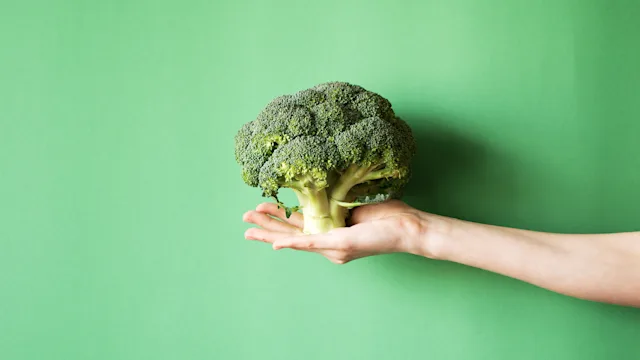Key takeaways:
Lycopene is an antioxidant that may help protect against prostate cancer, heart disease, and stroke. It can also help with Type 2 diabetes.
Tomatoes are the best food source of lycopene. The lycopene content increases when tomatoes are heated and processed with oil, like in tomato sauce.
While there’s no recommended daily intake for lycopene, studies show beneficial results when you consume between 8 mg and 21 mg lycopene per day.
Lycopene, a plant nutrient, is a carotenoid. These are natural pigments that give certain fruits and vegetables their red and pink color. Scientists have been studying the health benefits of lycopene for years since its antioxidant effects are linked to a reduced risk of certain health conditions.
Tomatoes and tomato-based foods are the main food source of lycopene. Lycopene is also found in smaller quantities in other fruits and vegetables that have a pink, orange, or red hue. Read on to learn which foods have the most lycopene, and how lycopene can benefit your health.
Note: Nutrient values for this list were sourced from the FoodData Central database of the U.S. Department of Agriculture (USDA).
1. Sun-dried tomatoes
Lycopene content: 46 mg per 100 g
These powerful dried morsels have an intense salty-sweet taste that’s much stronger than that of fresh tomatoes. And sun-dried tomatoes are so high in lycopene that even a very small amount of them can provide health benefits. A tablespoon of sun-dried tomatoes has about 2 mg of lycopene. Try them on a sandwich or folded into a wrap, as a pizza topping, or chopped into a salad.
2. Tomato paste
Lycopene content: 28.8 mg per 100 g
Tomato paste is prepared with heat, which increases the amount of lycopene available to be absorbed by the body. Tomato paste can be used as a base for tomato sauce, tomato soup, and stews. Plus, it’s an ingredient in many sauces, including ketchup. In fact, ketchup has about 2 mg of lycopene per tablespoon.
3. Tomato juice
Lycopene content: 9 mg per 100 g*
Tomato juice can be made using raw (cold-pressed) or heated processes. But heat-processed tomato juice provides more lycopene. You can add a dash of oil or drink it alongside a handful of nuts — the fat will increase the amount of lycopene that your body absorbs.
Is tomato juice good for you? Tomato juice is filled with health-boosting lycopene. But it’s often high in sodium, too, so here’s how to choose the healthiest type.
Why are antioxidants good for you? Antioxidants protect your cells from damage that can cause disease. And it’s not difficult to add them to your diet.
Foods for a healthy heart: Eating foods that are high in fiber, unsaturated fat, and vitamins — like fruits, veggies, oily fish, and nuts — may help prevent heart disease.
*Value comes from the Canadian Nutrient File.
4. Tomato sauce
Lycopene content: 6.2 mg per 100 g
Since both heat and oil help the body absorb lycopene, a boiled tomato sauce made with a drizzle of oil is an excellent source of lycopene. Use tomato sauce on pasta or pizza, or as the base of chili or stew.
Read more like this
Explore these related articles, suggested for readers like you.
5. Guava
Lycopene content: 5.2 mg per 100 g
Sweet pink and red guava provide lycopene. But note that many types of guava (such as Mexican guava, lemon guava, or apple guava) are yellow inside and don’t contain as much lycopene, if any. You can eat the whole guava, including the skin, flesh, and seeds. Some people prefer to peel it, and that’s fine, too. Simply cut off the tip, then cut the rest into slices.
6. Watermelon
Lycopene content: 4.5 mg per 100 g
Watermelon is a juicy, sweet source of lycopene. Red watermelon has the most lycopene, while yellow and orange-fleshed watermelons have a bit less at about 3 mg per 100 g. For a refreshing drink, blend watermelon with ice and fresh mint leaves. Or try pairing watermelon with feta cheese, olive oil, and balsamic vinegar to serve as a salad.
7. Cooked tomatoes
Lycopene content: 3.7 mg per 100 g
Though you lose a bit of vitamin C when you cook tomatoes, the heat increases lycopene content. So saute, roast, or stir-fry tomatoes in oil according to your preference. Cooked tomatoes are an excellent base for tomato sauce and tomato paste.
8. Raw tomatoes
Lycopene content: 2.5 mg per 100 g
Ripe red tomatoes have about 2.5 mg lycopene per 100 g serving (think: one small 2.5 inch diameter tomato). So try a tomato salad or chopped-tomato bruschetta topped with a bit of oil to help your body absorb the lycopene. Note that green tomatoes don’t contain lycopene.
9. Pink grapefruit
Lycopene content: 1.8 mg per 100 g
Pink and red grapefruits provide some lycopene, but white grapefruit has none. Note that certain people should avoid grapefruit, since it can interfere with certain medications, including anticholesterol statins, some antihistamines, and some blood pressure medications. Talk with a healthcare professional to see if grapefruit is OK for you.
Why is lycopene important?
Lycopene is an antioxidant. That means it helps stop free radicals from causing cellular damage that can lead to health conditions like cancer and heart disease. In fact, lycopene is known to be more effective than any other antioxidant (including beta carotene and vitamin E) at stopping the cellular damage caused by free radicals.
What health conditions can lycopene help with?
Studies have linked lycopene to a reduced risk of several different health conditions.
Heart disease
Lycopene is associated with a decreased risk of stroke and cardiovascular disease. It may help:
Manage blood cholesterol by binding to “bad” low-density lipoprotein (LDL) cholesterol
Protect against fatty buildup in arteries, which can lead to heart attacks and strokes
Improve blood flow in blood vessels, which helps with blood pressure
Prevent platelets from sticking together and forming blood clots
Prostate cancer
According to research, a high intake of lycopene — between 9 mg and 21 mg from food or supplements — may decrease the risk of developing prostate cancer.
There also might be a health benefit for those already diagnosed with prostate cancer. Lycopene may:
Help improve treatment outcomes of advanced prostate cancer
Reduce the risk of dying from prostate cancer
Delay prostate cancer from progressing or worsening
Help the body respond well to chemotherapy
Type 2 diabetes
Lycopene intake has been shown to help decrease fasting blood glucose levels, which helps with diabetes management. Since lycopene is an antioxidant, it also helps lower oxidative stress. That’s important because oxidative stress leads to insulin resistance and long-term complications from diabetes, such as heart disease.
How much lycopene do you need every day?
There’s no recommended daily intake for lycopene, since it’s not an essential nutrient. Most adults get about 6 mg to 10 mg of lycopene per day. Studies show that about 8 mg to 21 mg of lycopene per day (depending on the study) can lead to health benefits.
Can you have too much lycopene?
People who eat many tomato-based foods will get a lot of lycopene, which is considered safe. Studies suggest that intake up to 75 mg of lycopene per day from food or supplements has no adverse effects.
There’s no information to determine whether lycopene is safe in higher doses than this. Nor are there studies to determine if lycopene in supplement form is safe during pregnancy or when breastfeeding. But it’s likely that lycopene from food sources is safe for most people.
Should you try lycopene supplements?
Check with your primary care provider to see if lycopene supplements are the right choice for you. They may be recommended for certain health conditions, such as lowering the risk of prostate cancer.
It’s important to note that lycopene may slow blood clotting, so you should avoid lycopene supplements if you’re taking medications that also slow blood clotting. It’s also a good idea to stop using lycopene supplements 2 weeks before any surgery, since they may increase the risk of bleeding.
The bottom line
Lycopene is a powerful antioxidant that’s linked to improved blood sugar levels and a reduced risk of heart disease, stroke, and prostate cancer. The best dietary source of lycopene is tomatoes. Cooking tomatoes and/or adding a bit of oil helps your body absorb the lycopene even better. Tomato paste is especially rich in lycopene.

Why trust our experts?



References
Bacanli, M., et al. (2017). Lycopene: Is it beneficial to human health as an antioxidant? Turkish Journal Of Pharmaceutical Sciences.
Bluebook. (n.d.). Guava market summary.
Chen, P., et al. (2015). Lycopene and risk of prostate cancer: A systematic review and meta-analysis. Medicine.
Dewanto, V., et al. (2002). Thermal processing enhances the nutritional value of tomatoes by increasing total antioxidant activity. Journal Of Agricultural And Food Chemistry.
Imran, M., et al. (2020). Lycopene as a natural antioxidant used to prevent human health disorders. Antioxidants.
Inoue, T., et al. (2023). Effect of lycopene intake on the fasting blood glucose level: A systematic review with meta-analysis. Nutrients.
Kapała, A., et al. (2022). The anti-cancer activity of lycopene: A systematic review of human and animal studies. Nutrients.
Li, N., et al. (2021). Tomato and lycopene and multiple health outcomes: Umbrella review. Food Chemistry.
Liang, X., et al. (2021). Enhancing lycopene stability and bioaccessibility in homogenized tomato pulp using emulsion design principles. Innovative Food Science and Emerging Technologies.
MedlinePlus. (2023). Lycopene.
Naz, A., et al. (2014). Watermelon lycopene and allied health claims. EXCLI Journal.
Pryzybylska, S., et al. (2022). Lycopene in the prevention of cardiovascular diseases. International Journal of Molecular Sciences.
Rowlers, J. L., III., et al. (2017). Increased dietary and circulating lycopene are associated with reduced prostate cancer risk: a systematic review and meta-analysis. Prostate Cancer and Prostatic Diseases.
Story, E. N., et al. (2010). An update on the health effects of tomato lycopene. Annual Review Of Food Science And Technology.
Wu, X., et al. (2021). Are processed tomato products as nutritious as fresh tomatoes? Scoping review on the effects of industrial processing on nutrients and bioactive compounds in tomatoes. Advances in Nutrition.


















